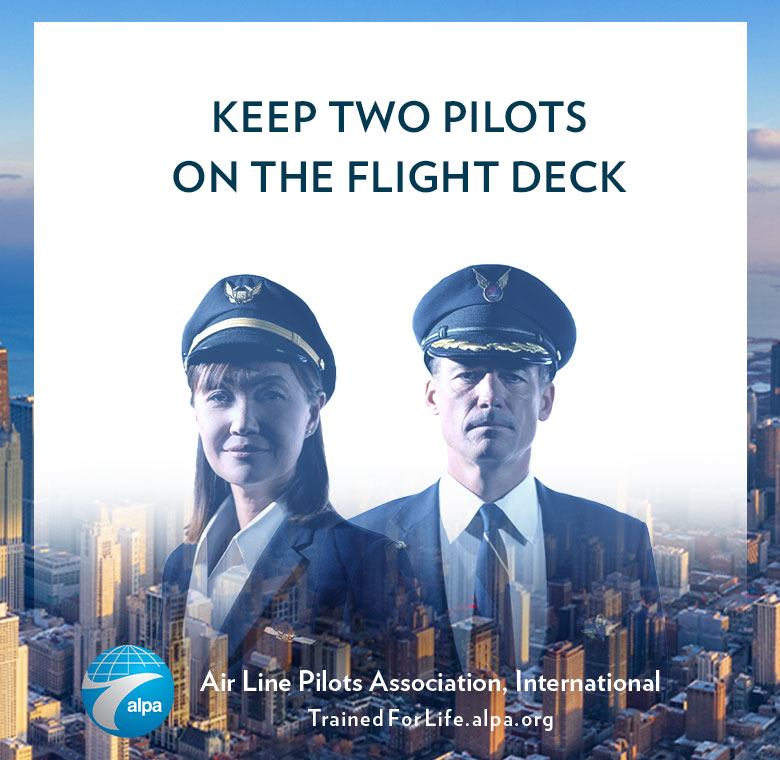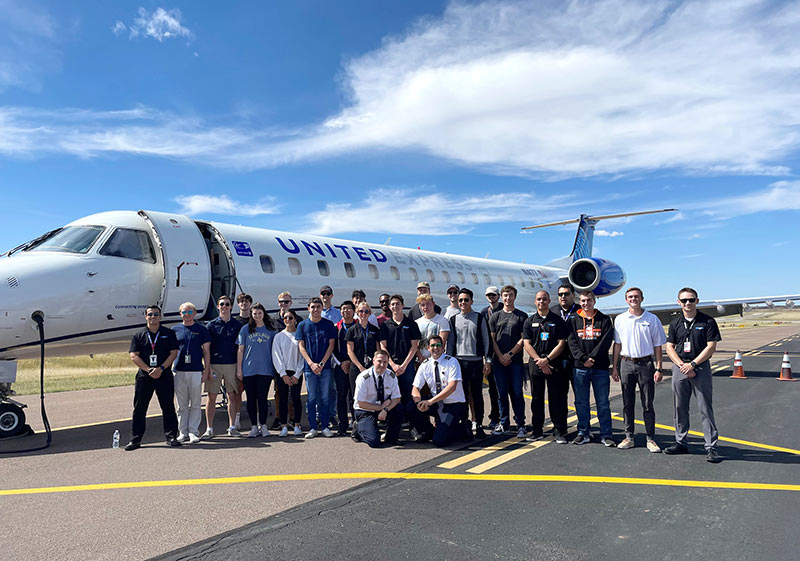Leadership From the Flight Deck
We know that the most vital safety feature on a commercial airliner is at least two experienced, trained, and rested professional pilots on the flight deck—and as our passengers begin to return to the skies, we are delivering this message loud and clear so travelers know that airline pilots are More Than Ready to get them safely to their destinations this holiday season and beyond.
Long before she became a captain, or had even flown on an airplane, Claudia Zapata-Cardone was no stranger to the airport. Almost every night growing up, Claudia and her mother would bring her father dinner during his shifts at the airport. During these drop-offs, Zapata-Cardone would watch the planes land and take off, imagining how “magical” the experience of flying must be. With her father’s help, she learned to identify the different types of aircrafts, their fuel capacities and how far they could travel.
Pilots are keeping pressure on members of Congress during this frenetic legislative period to ensure ALPA’s pilot-partisan agenda stays top of mind. The Association has several key agenda items in front of Congress to protect ALPA members from a variety of threats, including foreign business practices that threaten fair competition and security issues related to flightdeck doors on both passenger and cargo aircraft.
The past year has bore witness to a disturbing trend—the rise of the unruly passenger. While the causes are varied, the threat is clear and must be addressed.
Since its founding in 1931, the Air Line Pilots Association (ALPA) has been relentless in advancing aviation safety and security, but the events of 9/11 demonstrated the immediate need to shore up safety and security holes in our industry. Over the past two decades, this Association has been a leader in the development and implementation of critical security improvements including the Known Crewmember program, the Federal Flight Deck Officer program, antihijacking training, airport passenger screening requirements, and expansion of the terrorist “Watch” and “No Fly” lists, to name a few.
However, despite this progress—and especially in light of the growing trend of passenger outbursts—more needs to be done to protect the flight deck. As the United States expands efforts to educate passengers and enforce the law in response to disruptive passenger events, government officials must also do more to protect the flight deck from being breached.




